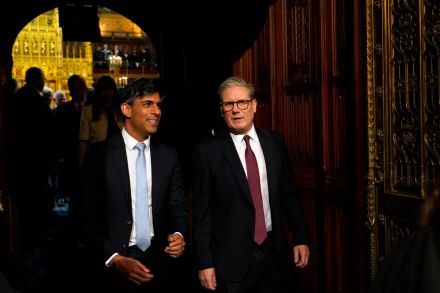Keir Starmer’s honeymoon is unquestionably over
Keir Starmer is back at the despatch box for Prime Minister’s Questions today and his honeymoon period is unquestionably over. He will face hostile questions on the winter fuel payment, on arms export licences to Israel, and on whether Labour plans to raise taxes in the autumn budget. And he will want to talk about the Grenfell Inquiry, which is publishing its report shortly. That report will be uncomfortable reading mainly for Conservatives, but the recommendations will be Labour’s to implement – or not –and the pressure will be on the Prime Minister to accept them in full. Starmer has made public injustices and the system not working for ordinary people




















